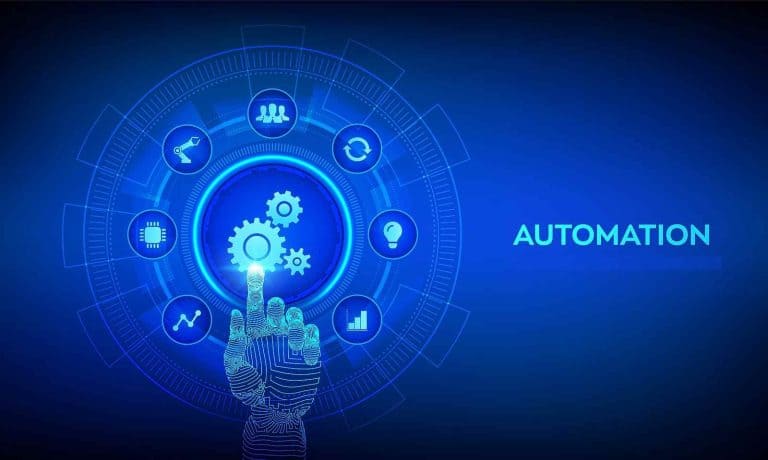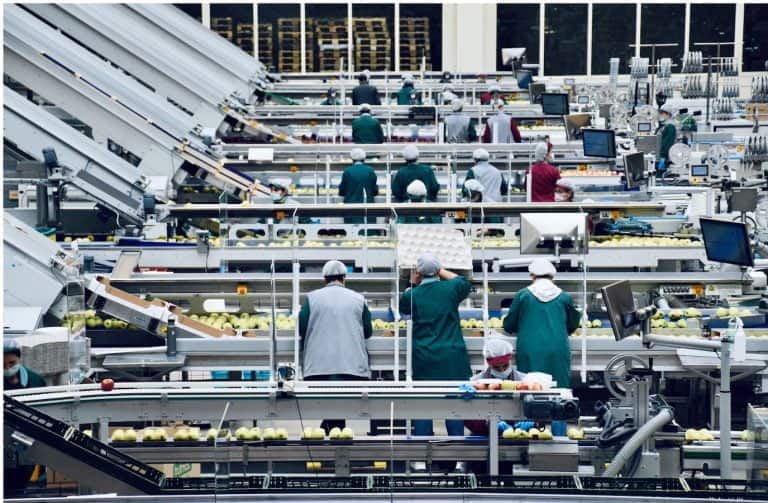Job Automation Overview.
Table of Contents
ToggleTechnology is ever-evolving, and when it does, it revolutionizes industries — making it easier to produce while simultaneously taking away jobs in the process.
Humanity is now in its Fourth Industrial Revolution, where digitization and smart technologies will reign supreme. That’s got plenty of people worried that their jobs are next on the proverbial chopping block thanks to workplace automation.
Roughly 25% of jobs in the U.S. are at “high risk” of becoming automated. Public perception surrounding these changes is none too positive, says Pew Research:
- More than 80% of adults in the United States are bracing for widespread automation by the year 2050.
- Nearly 40% believe robots and computers will displace their jobs by 2050.
- Around 76% of Americans believe automation will worsen income inequality.
- Only 33% believe that automation will lead to new, better-paying jobs.
Automation is poised to cause major shake ups in the job market. This raises questions among the workforce about what they’ll need to do to adapt to the expected changes automation will bring. This article will provide insights into how you should expect industries to evolve and address what you can do to keep pace.
How Automation is Changing the World
The big question on most workers’ minds is whether or not their jobs are at risk of being automated. To get an idea of how likely that is, it will help if you understand how businesses are integrating automation into their workflows.
Speaking generally, the trend in many fields will be toward hyper automation. This process involves the combination of multiple advanced technologies (AI, machine learning, robotic process automation, and others) to free humans from the burden of repetitive, low-value tasks so that they may focus their attention on higher-value priorities.
A specific example of this in action would be the task of planning the most efficient delivery routes. Once, this was something that required serious human input. Now, the responsibility largely falls to software that can perform the job faster and more reliably, while human employees handle the more human elements of their business.
Staying within the realm of deliveries, autonomous vehicles are also likely to see more use in the coming years, particularly when it comes to solving the challenge of the last-mile delivery problem. In this context, AVs can fill a critical gap in the market and enable faster, more convenient deliveries in major cities.
Now, contrast these trends with an area like construction. While the field is definitely seeing automation come into play, its introduction is more likely to increase productivity than it is to diminish employment opportunities. In fact, skilled trades within this industry, like plumbers and electricians, are expected to see growth in the coming years.
So, automation, while it does represent sweeping change for the job market, is not to be feared universally. Rather, it’s more sensible for you to comprehend where and how changes are most likely to occur and to adapt accordingly. Next, let’s discuss what you can do to prepare and the skills you’ll need to thrive in this new world.
How You Can Adapt to the Future Job Market and Job Automation
As automation changes the job market, the skills that will put you in high demand are going to shift as well. Seeing as this revolution is technological in nature, education in computers and information systems will be valuable across the board. You will gain insight into how to visualize your organization’s big picture, which should include automation. It will also help you hone your soft skills, such as leadership.
These are the traits we think of as uniquely human — things that computers can’t yet replicate and may never be able to mimic. As the Fourth Industrial Revolution progresses, you should prioritize these ten skills if you want to get ahead:
- Complex Problem Solving
- Critical Thinking
- Creativity
- People Management
- Coordinating With Others
- Emotional Intelligence
- Judgment and Decision Making
- Service Orientation
- Negotiation
- Cognitive Flexibility
As you can see, human interaction, negotiation, face-to-face conversation, and internal contemplation are all central to mastering these skills. While some might be outside your wheelhouse at present, improving your competence in these areas will be positive.
As for what sorts of careers will be available for you to impress with your newfound talents, creative and human-focused fields like teaching and design are going to be good bets, but you can also use the Bureau of Labor Statistics’ Employment Projections to get a more detailed idea of which roles you should shift your focus to. Their predictions for top growing fields of the next decade include:
- Project management specialists
- Computer information and systems managers
- Management analysts
- Market specialists
- Medical and health services
- Financial managers
- General operations managers
- Registered Nurses
- Software developers
Start planning for these jobs of the future, and you’ll be in a good position to compete when the Fourth Industrial Revolution is in full swing.
Job Automation: Final Thoughts
Job automation is coming, and it will require us to learn new skills to keep pace. Staying curious and continuing your education in whatever forms possible will help keep you prepared, and you should focus your efforts on improving your creativity, critical thinking, and communication skills so that you can stay a valuable asset well into the future.





